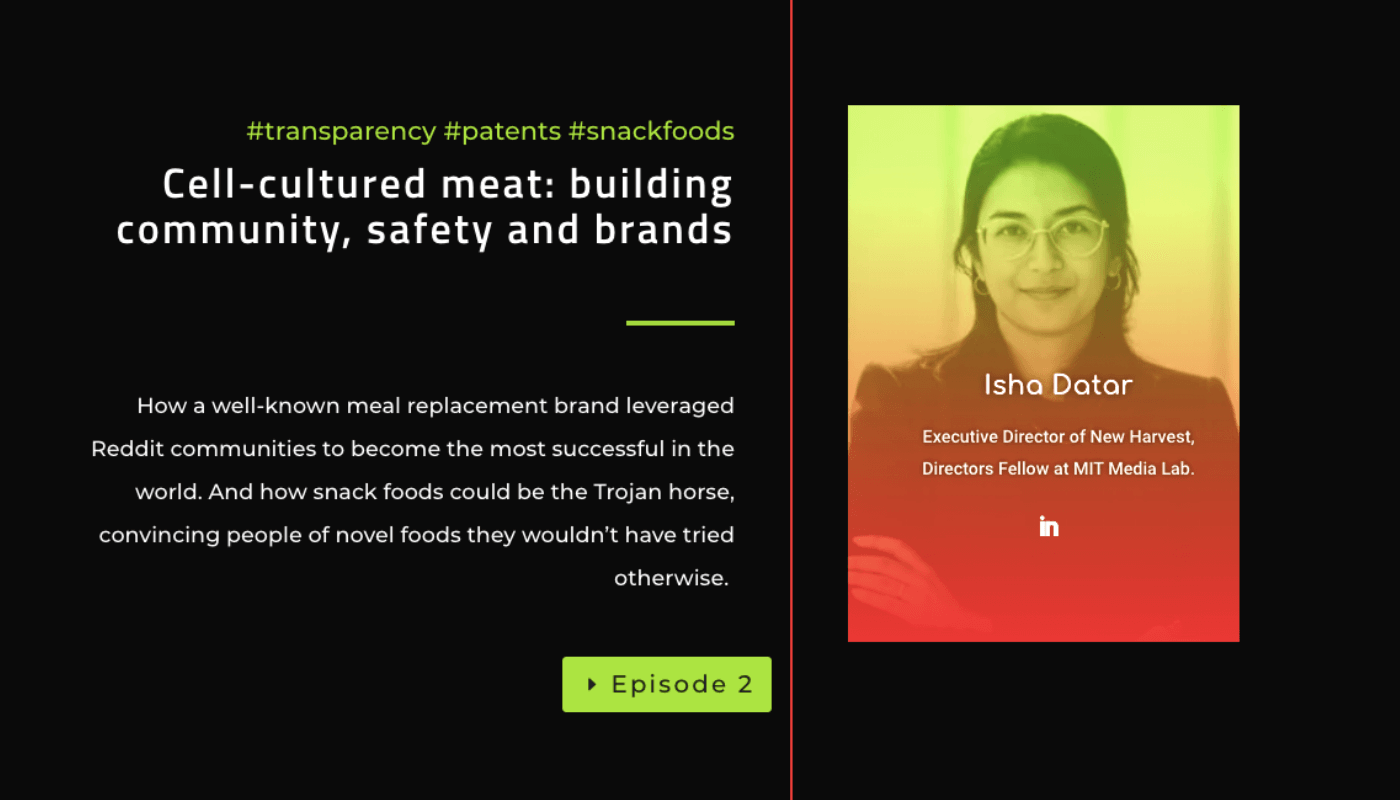We are excited to renew our media partnership with Red to Green for Season 3!
Red to Green is a Podcast dedicated to providing content on sustainable food innovations, founded and hosted by Marina Schmidt. What sets Red to Green apart from other food tech podcasts is that instead of adopting the more common approach of each episode discussing different topics, they chose a storytelling approach. Indeed, Red to Green grouped their conversations by seasons of about 12 to 14 episodes, each season covering one theme at a time. Organizing the podcast this way allows for a deeper and better understanding of the designated topic and to build up the audience’s knowledge towards the following subjects.
Season 1 encompasses different aspects about cultured meat and cellular agriculture, from introducing it to what it is and why it is revolutionary to hearing the perspectives of investors and consumer adoption.
Season 2 moves towards a conversation surrounding plastic alternatives and sustainable food packaging. We hear from experts and innovators in the field differentiating between different types of sustainable packaging, greenwashing, recycling and much more.
Season 3 is all about understanding how to promote alternative proteins and consumer acceptance.
Episode 12
Episode 12 has 2 guests. The first is Prof. Kimberly Nicholas, followed by Dr. Gulbanu Kaptan. Prof. Kimberly is a senior lecturer in Sustainability Science at Lund University in Sweden. Kimberly holds a PhD in environment and resources from Stanford University. She has also published over 50 articles on climate and sustainability in leading peer-review journals and is the author of the book “Under the Sky We Make: How to be Human in a Warming World”. Dr. Gulbanu is an Associate Professor in Behavioral Decision-making at the University of Leeds. Her research focuses on judgment with a special interest in food-related decision-making and risk and benefits communications.
The topics
Kimberly has an interesting take on toxic positivity, viewing it as a mantra that is sort of enforced without evidence in climate circles. Indeed, she explains that there are folks who say we can only talk about the benefits, the win-win scenarios. And she does not agree with that. About climate pollution, Kimberly states that around 10% of the global population causes about half of household climate pollution. Plus, if you earn over 38,000 U.S. dollars a year, you’re likely in that group of top 10% of emitters. Additionally, she talks about fossil fuels, her book, and exposes her interesting and quite controversial opinions.
The conversation with Dr. Gulbanu was more centered on the question of transparency, trust, communication, and consumer acceptance. Truly, the guest believes that the question is not about transparency, but rather about uncertainty. In fact, she believes that the crucial aspect of it is how to communicate uncertainty, and not being fully transparent or not transparent. Although her session is brief, she gives a relevant and different perspective on the subjects.
You can find this episode here and on other channels here.
Moreover, find all our articles covering the Red to Green episodes from season 3 here.
